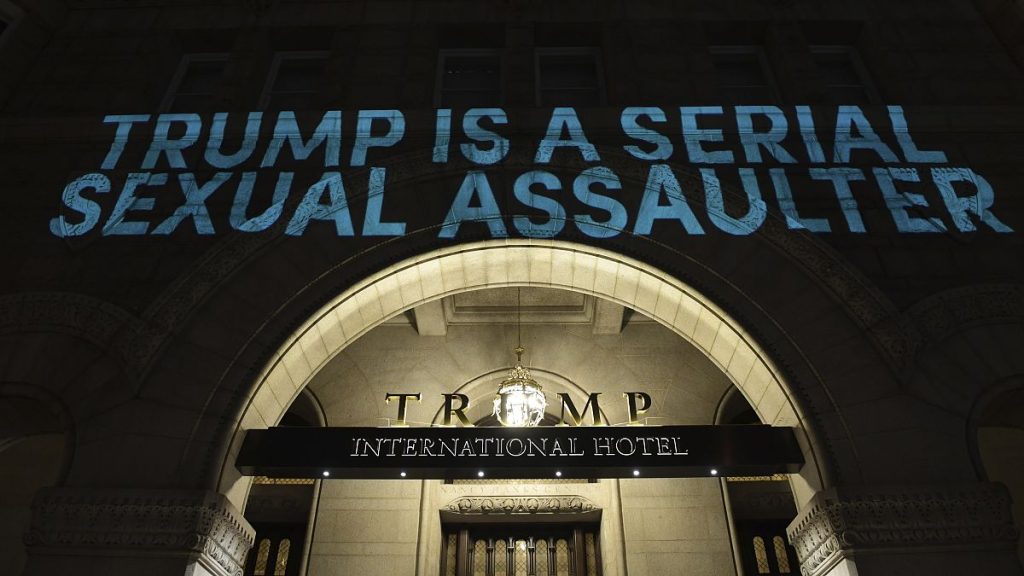The Dividing Lines of 2024: Merriam-Webster Crowns "Polarization" as Word of the Year
The year 2024 has been a year of stark contrasts and deepening divides, a reality captured by Merriam-Webster’s selection of "polarization" as its Word of the Year. This choice reflects not only the tumultuous political landscape but also the widening fissures in culture and society. The word signifies a drift away from the center, a tendency towards extremes that manifests in fierce disagreements and opposing factions. While the political arena provides a prominent example, with the return of Donald Trump to the White House symbolizing this division for many, the concept of polarization extends far beyond the political sphere, permeating various aspects of life, from pop culture to everyday discourse.
Merriam-Webster’s selection process, based on data-driven analysis of search and usage trends, underscores the word’s pervasiveness in the current lexicon. The dictionary, which receives 100 million pageviews monthly, serves as a neutral arbiter of meaning, a crucial role in an era characterized by misinformation and the manipulation of language. The choice of "polarization" highlights the dictionary’s commitment to reflecting the zeitgeist, capturing the essence of a year marked by increasingly entrenched viewpoints and a growing chasm between opposing groups.
The significance of "polarization" as the Word of the Year is further amplified by the context of the other words that made Merriam-Webster’s top ten list. These words, ranging from "demure" to "democracy," offer a glimpse into the diverse themes and events that shaped the year. "Demure," Dictionary.com’s Word of the Year, represents a contrasting concept to polarization, perhaps suggesting a yearning for a more restrained and less confrontational discourse. "Fortnight," propelled into prominence by a Taylor Swift song, exemplifies the influence of pop culture on language. "Totality," linked to the year’s solar eclipse, reflects a momentary shared experience that transcended divisions.
Other words on the list, such as "resonate," "allision," "weird," "cognitive," "pander," and "democracy," further illuminate the prevailing concerns and anxieties of the year. "Resonate," increasingly used in AI-generated text, points to the evolving relationship between language and technology. "Allision," spiking after a ship collision, highlights the unexpected events that can capture public attention. "Weird," used by a governor to describe political opponents, reflects the escalating rhetoric in political discourse. "Cognitive," linked to discussions about President Biden’s debate performance, underscores the focus on mental acuity in political leadership. "Pander," frequently used in political commentary, captures the perceived tendency of politicians to appeal to specific groups. Finally, "democracy" itself, a fundamental concept often taken for granted, emerges as a keyword, highlighting its vulnerability in a polarized climate.
The choice of "polarization" as Merriam-Webster’s Word of the Year is not an isolated phenomenon. Other dictionaries have also selected words that reflect the current social and political climate. Collins Dictionary chose "brat," perhaps reflecting a perceived decline in civility and respect. Cambridge Dictionary opted for "manifest," suggesting a focus on making intentions and beliefs clear. Oxford Dictionary’s selection of "brain rot" points to the anxieties surrounding misinformation and its impact on cognitive processes. These diverse choices, while differing in specific meaning, collectively capture the anxieties and preoccupations of a year marked by uncertainty and division.
In conclusion, the selection of "polarization" as Merriam-Webster’s Word of the Year serves as a potent symbol of the current state of affairs. It highlights the deepening divides in society, the increasing tendency towards extremes, and the challenges of finding common ground in a fragmented world. The word, chosen based on its increased usage and search frequency, reflects the pervasiveness of this phenomenon in public discourse and private conversations. Furthermore, the other words on Merriam-Webster’s top ten list, along with the selections from other dictionaries, provide a broader perspective on the year’s defining themes, anxieties, and preoccupations. They paint a picture of a year grappling with complex issues, navigating a rapidly changing world, and searching for meaning and connection in an increasingly polarized landscape.














